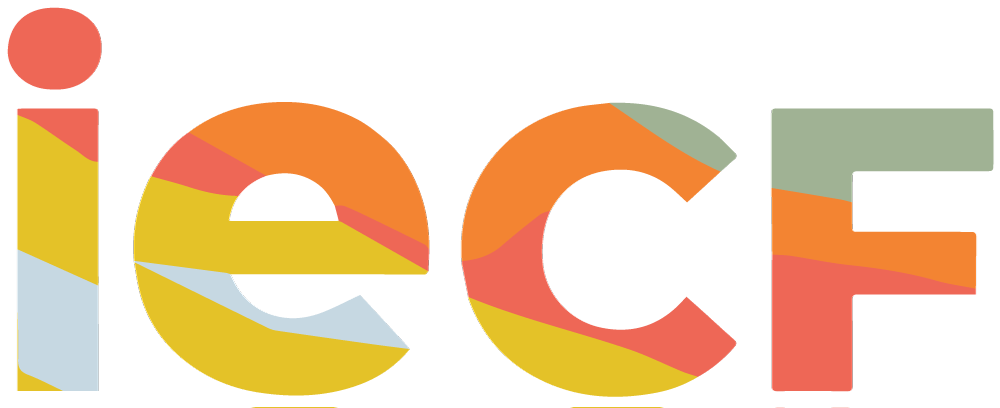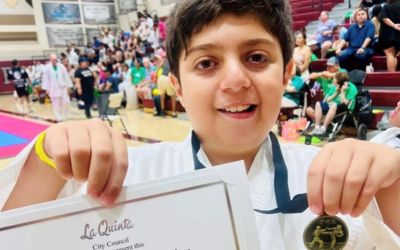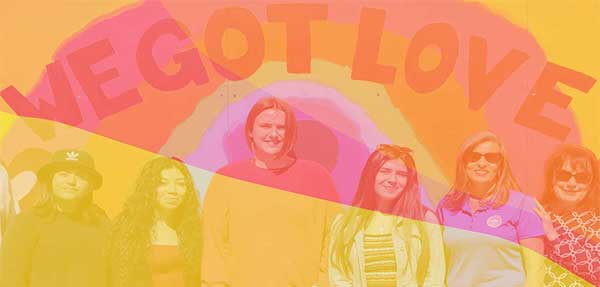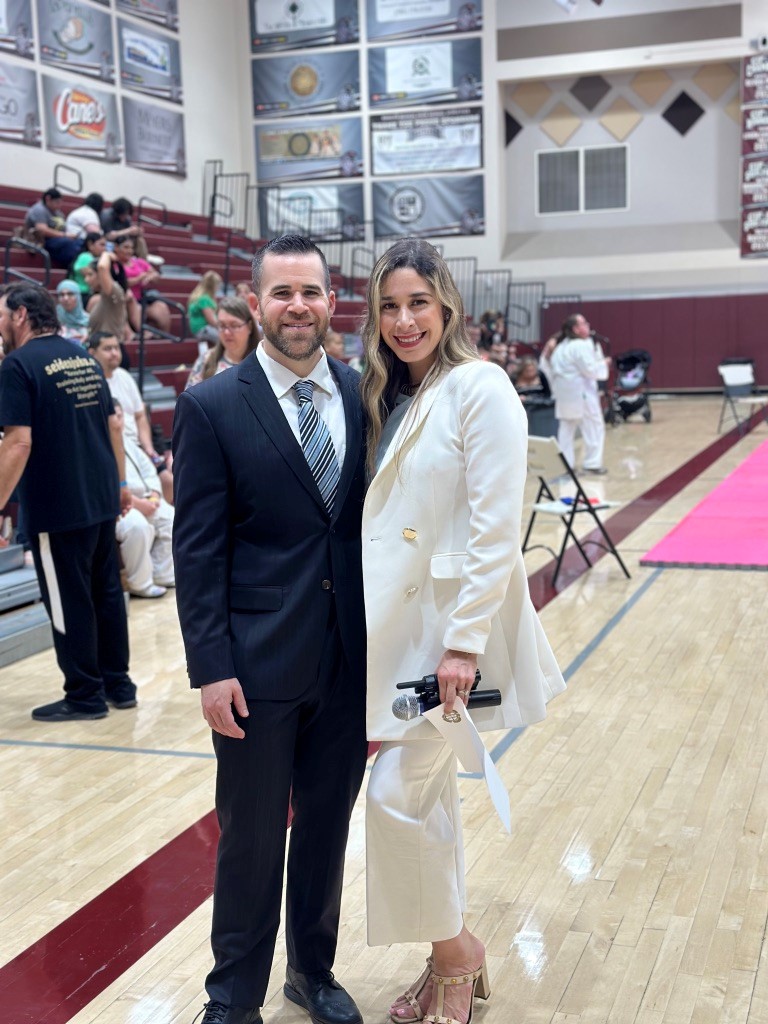
Seiden-Juku’s CFO Maxwell Lifschutz and CEO Sensei Tamara Canedo-Lifschutz
Inland Empire Community Foundation grant empowers innovative nonprofit
Sensei Tamara Canedo-Lifschutz of Seiden-Juku in La Quinta receives a lot of bows from her students. That bow, known as “rei,” indicates a sign of respect and reverence for the teacher or the area in which karate takes place, the dojo.
But the founder of the successful nonprofit that provides adaptive karate instruction for individuals with disabilities cannot deny the deep respect and awe she holds for the students she’s instructing.
“Ninety percent of the parents in our organization have come to me and told me, ‘I had a doctor that told me my son will be in a wheelchair the rest of his life,’ or I have a daughter that’s in a walker and wears braces and they said that this will be my child’s life,’” Canedo-Lifschutz says. “I’ve had students who come into my dojo who were autistic, nonverbal, and they’ve gone to speech therapy their whole life. But through our doors, miracles happen by building confidence in these individuals.
“They learn they have the power to achieve what they set their mind to,” she adds.
It’s all part of the stellar upward success of Seiden-Juku, which went from having a handful of students when it launched several years ago to welcoming more than 120 today. The nonprofit is also benefitting from a recent grant from Inland Empire Community Foundation (IECF) through the Fred Stebler and Eva V. Stebler Foundation Fund, which Canedo-Lifschutz admits has been somewhat of a miracle itself.
“For us, it’s mind-blowing to even receive grant approval because we’ve been a nonprofit for the last four years and we have had a 99 percent grant denial rate,” Canedo-Lifschutz says. “It helps us with getting uniforms, so that the individuals don’t have to be in just shorts and a shirt when they’re doing karate.”
Canedo-Lifschutz’s backstory is compelling. By all accounts, it’s rich material for a documentary filled with mission-driven accomplishments and serendipitous twists. Her father, who was the former the technical director for Team USA with the Olympic Committee, became an early source of inspiration.
“I was born and raised in a dojo,” she admits. “I was working at a financial institution before my dad passed, and a local priest by the name of Father John came into my dojo with a suggestion to work with people with disabilities. I was like, ‘Are you crazy? I’ve never worked a day in my life with individuals with disabilities. I don’t know how to do that. He’s like, ‘Yes, you do, you were born with a disability. “
Canedo-Lifschutz’s was born with deformed feet, quickly noting, “My dad never treated me like a para-athlete. “I competed my whole life as a neurotypical athlete.”
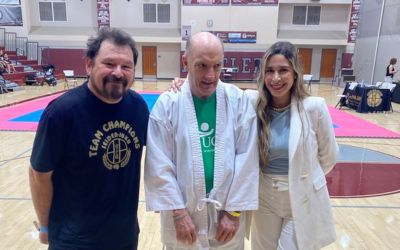
DJ Paul Villalobos, Steven Benito, & Sensei Tamara Canedo-Lifschutz
Soon enough, Father John introduced Canedo-Lifschutz to two athletes with disabilities. Things blossomed from there.
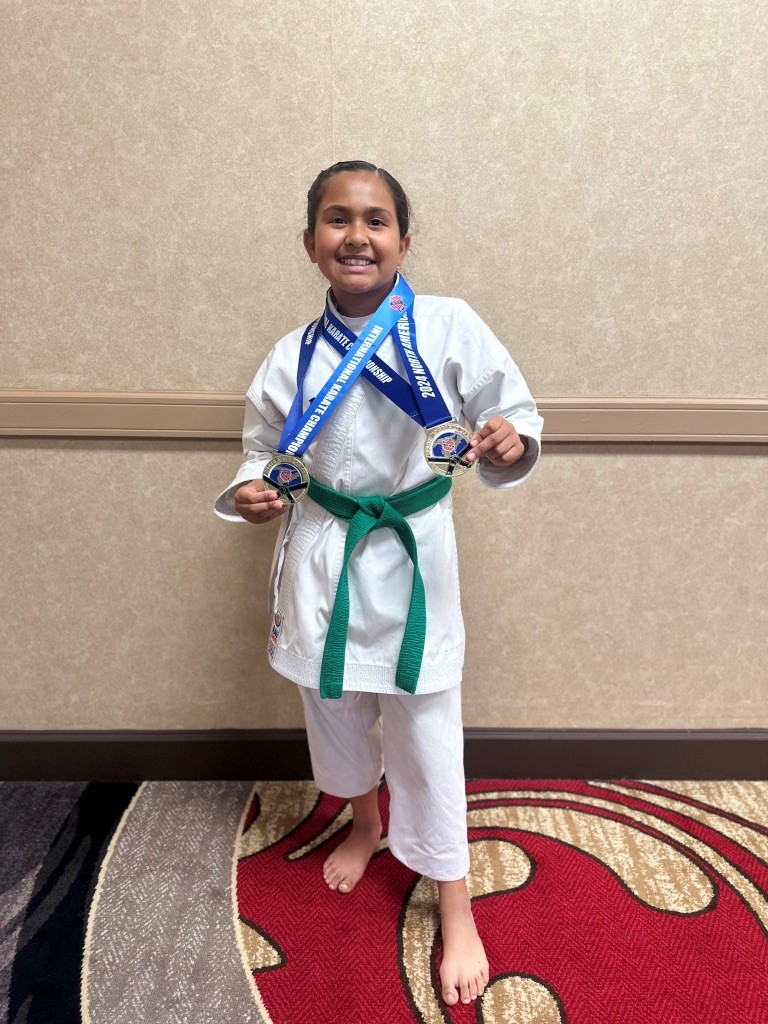
Savannah Torres
“We’ve had students who have gone from nonverbal to verbal. We have blind students who could get lost in a room to learning awareness and knowing where they are by realizing they have somebody who’s 10 feet away. We’ve also been able to get our athletes in competitions.”
One of them was the recent Coachella Valley Para Karate Tournament, held at Rancho Mirage High School, which garnered attention and attracted more students.
Donations help cover fees
Canedo-Lifschutz says the organization does not charge a fee to its athletes. “Uniforms, exams, and everything they need, we cover,” she says, “but we could have never gotten all that covered if it wasn’t for the grant to community.”
Individuals interested in donating can visit the nonprofit’s website, or IECF donors including those with Donor Advised Funds (DAFs) are invited to contribute to the organization. Contact giving@iegives.org to get started.
In the meantime, the exercise component of martial arts and the mental stress release itself provides multiple health benefits for students. Seiden-Juku’s instructors include special breathing techniques along with activities that boost the heart rate. Emerging from these participations, Canedo-Lifschutz says, is an improvement in the self-esteem of students, regardless of age.
She also adds that the combination of mental and physical components of karate give students an opportunity to sharpen their focus, control, and simply release energy and emotions.
“I’m almost on eight years now specializing working with individuals with disabilities,” Canedo-Lifschutz shares. “I have blind athletes, athletes with autism, cerebral palsy, Down syndrome, those who are in a wheelchair, and students with epilepsy. I love seeing what can be achieved through building true confidence.”
Learn more at seidenjuku.org.
This story originally appeared in the Desert Sun, October 2024.
Stay up to date on all the good work we’re doing through the power of philanthropy. Sign up for our eNewsletter, Philanthropy Matters, today.

